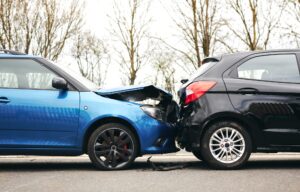Table of Contents
ToggleTraumatic Brain Injury Symptoms Years Later

Traumatic brain injuries (TBIs) can range from mild concussions to life-threatening conditions. In most cases, TBIs result from direct trauma to the head. The consequences can be catastrophic whenever a blow, jolt, or sudden impact disrupts normal brain function.
Though most mild and moderate TBIs result in short-term symptoms, long-term complications can affect individuals for years afterward.
Common Traumatic Brain Injury Symptoms
According to the Centers for Disease Control (CDC), there were roughly 223,135 TBI hospitalizations and 64,362 TBI-related deaths in 2020. Additionally, figures show that adults 75 years and older are more likely to suffer TBIs, making up one-third of deaths and hospitalizations attributed to brain injuries.
TBI symptoms vary depending on the severity of the injury, the type of accident, and any preexisting health conditions. In many TBI cases, people may feel dazed or confused. In others, symptoms may not be apparent right away. For some patients with a concussion, symptoms may not develop until days after an accident.
Some of the most common signs of a TBI include the following:
- Difficulty speaking
- Memory problems
- Nausea and vomiting
- Persistent headaches
- Fatigue and dizziness
- Seizures and convulsions
- Changes in sleep patterns
- Confusion or disorientation
- Mood and behavioral changes
- Sensitivity to smells or bright lights
Because TBIs can vary greatly, medical professionals have developed a severity scale to classify them. After most accidents, doctors will evaluate symptoms and perform tests to determine the level of a TBI.
The Glasgow Coma Scale is the industry standard with the following range:
- Mild
- Moderate
- Severe
- Vegetative state
Even seemingly mild brain injuries require medical attention to get treatment and avoid complications related to a TBI. In some cases, brain imaging may be necessary to check for bleeding, such as a hematoma.
Long-Term Disabilities Related To a TBI
While most healthy individuals can recover from a mild TBI, other TBIs can result in permanent disabilities or contribute to deteriorating conditions for years to come.
Some TBI factors known to cause long-term cognitive disabilities include:
- Contusions
- Axonal shearing
- Repeated concussions
- Coup-contrecoup injuries
- Hemorrhages and hematomas
- Injuries due to brain penetration
- Second Impact Syndrome (SID)
Research indicates that the following conditions are most likely to develop in patients who suffer a moderate or severe TBI:
Post-Traumatic Epilepsy and Seizures
Approximately 25% of patients with a severe TBI are prone to developing seizures during their lifetime.
Serious injury to the brain can result in cellular damage and alter cognitive mechanisms. Whenever the brain suffers a severe blow, neural pathways may struggle to repair themselves, leading to chemical imbalances and resulting in seizures.
Although some individuals are born with epilepsy, others can develop this condition following an accident.
Neurodegenerative Disease
Recently, new research has suggested that TBIs increase the risk for degenerative conditions such as Alzheimer’s, Parkinson’s, and Chronic Traumatic Encephalopathy (CTE).
Whenever the brain suffers multiple TBIs over a lifetime or in younger individuals still developing, inflammation and swelling can contribute to disruptions in normal brain function. Repeated minor concussions can result in impaired brain function later in life.
Mood Disorders and Mental Illness
For some TBI patients, psychological conditions may develop or worsen.
Some of these conditions include:
- Anxiety
- Depression
- Bipolar disorder
- Personality disorder
Research shows that patients with no previous psychological conditions are four times more likely to develop mood disorders following a moderate to severe TBI.
Emotional processing and mood regulation rely on complex neural pathways. Whenever a severe brain injury disrupts the brain’s normal ability to communicate with itself, mood can become destabilized and deteriorate over time, resulting in ongoing mental illness.
Contact Our Brain Injury Law Firm in Los Angeles, CA
If you were injured in an accident in Los Angeles, CA or you lost a loved one and you need legal assistance, please contact us to schedule a free consultation. One of our Los Angeles brain injury lawyers at M&Y Personal Injury Lawyers will get in touch with you soon.
M&Y Personal Injury Lawyers – Los Angeles Office
4929 Wilshire Blvd Suite 960,
Los Angeles, CA 90010
866-864-5477




